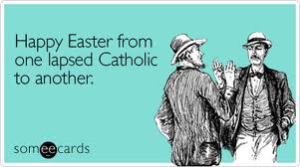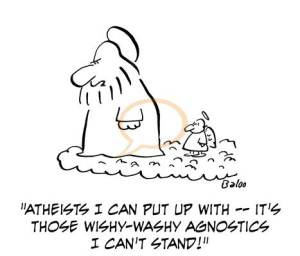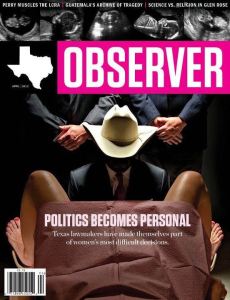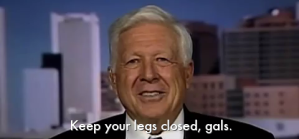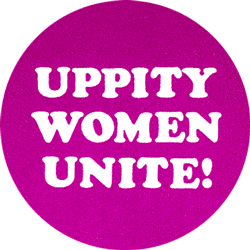I’d left the Catholic Church and all of the tradition I’d grown up with. I guess I could have left it at that and been just another of the many people who have left for one reason or another, after all a lapsed Catholic is still a Catholic who could potentially return to the church like the prodigal son. But no, I felt I needed some type of spiritual home which meant changing my religious identifier altogether.
But where to go? Clearly, my options were very limited. Protestant was out. Islam was out. Judiasm (reformed) was intriguing but they’re not really looking for converts. Buddhism sounded good, but there’s a shortage of Buddhist temples in the Dallas area. Decisions, decisions…..then I remembered a former co-worker of mine who had been Unitarian Universalist. I didn’t remember much about our conversations about her faith but I do remember her talking about how inclusive and open her church was.
So it was off to Google. Where I found the Unitarian Universalist principles:
- Protecting the inherent worth and dignity of every person
- Justice, equality and compassion in human relations
- Acceptance and encouragement of each individual’s spiritual journey
- A free and responsible search for truth and meaning
- The right of conscience and the democratic process
- The goal of a world community with peace, liberty and justice for all.
- Respect for the interdependent web of existence of which we are all a part.
Yes, yes and more yes! I needed more information so I found a UU church in my area and attended a Sunday service; it was a revelation. If you get the impression from the principles that this is a hippy-ish type of group….you’re kind of right. There were definitely some members who looked like they fit the bill. There were also older members, and young families, a whole range of people. They were welcoming and very interested in what had led me there. They shared their stories with me, some very similar, others very different.
The best part, and what I had come to hear, was the sermon. The readings were taken from a Jewish rabbi’s essay, a quote from the great Sufi poet Rumi and Walt Whitman. I can’t remember ever being as connected to what a minister was saying than I was at this service. I have always believed that there is wisdom in all cultures and traditions both spiritual and secular and that we cheat ourselves when we don’t learn from as many sources as we can find.

Rumi-Mystic Sufi Poet
And it has been in this place that I feel comfortable and like I can be myself. It does’t matter how my thinking changes and evolves because all manner of belief systems are embraced. Many members come from Christian and Buddhist backgrounds. Many would identify themselves as Secular Humanists. There’s a smattering of pagan/nature worship followers, and even some atheists. We’re all just looking at the big questions of life without someone else telling us they know the answer. It’s about the wonder of not knowing and feeling that it’s impossible for any human to comprehend fully the greatest mysteries of the universe. In other words, a room full of agnostics.
My favorite UU t-shirt says:
I’m a Unitarian Universalist: The bedrock of my faith is the unshakeable belief that your guess is as good as mine.
So that was that. I’d found my new place to spend some quiet reflective time, but now I had to tell my parents about my change of heart. I could think of a lot of things I’d rather do than have that conversation, and I felt like a little kid about it. (Amazing that I’m about to turn 40 but my parents are still my parents.) I talked with my mom first and she was surprised but not particularly upset. My dad however was a whole different story and I wasn’t even the one to actually tell him. I guess my mom brought it up one day and he was just devastated. She later told me not to bother trying to talk to him about it, because he was so upset he didn’t want to even discuss it with me. (I should mention here that my sweet dad is still an alter boy. This is the level of commitment we’re talking here…and please, no jokes.) It wasn’t until almost a year had passed that we were able to sit down and talk about my defection.
In retrospect, the timing couldn’t have been worse. I was visiting family in the days surrounding my grandmother’s passing and everyone’s emotions were on edge, but then again isn’t it always when someone has died that the conversation turns to things like religion and God and heaven? Things got heated but were both able to say what was on our minds and express the hurt that we both felt, him at my throwing away what he sees as an identifying characteristic of our family and me at his belief that this was a frivolous and poorly thought out decision. I wish I could say there was a great meeting of the minds, but that’s not the case. I didn’t sway him and he didn’t sway me. We haven’t talked about it since, but at least we were able to understand where the other one was coming from, and while I may never get my dad to cross the threshold of my UU church, I know he loves me regardless of whether I consider myself Catholic or not. (However, I wouldn’t put it past him to be saying rosaries for my return.)
Thank you for reading my story and for all of the kind and encouraging comments you have sent me on this blog, on my Facebook page and through e-mail. I can’t tell you how much the support means to me. If you like this or any other post, please share it, and follow my blog on this site or through my Facebook page. And since you’ve been so kind I’ll leave you with this quote from Khalil Gibran:
Related articles
- My Mid-life Crisis of Faith (or How I Broke My Father’s Heart)-Part 1 (thepassionatemoderate.com)
- Thoughts on religion… (myspontaneousself.wordpress.com)
